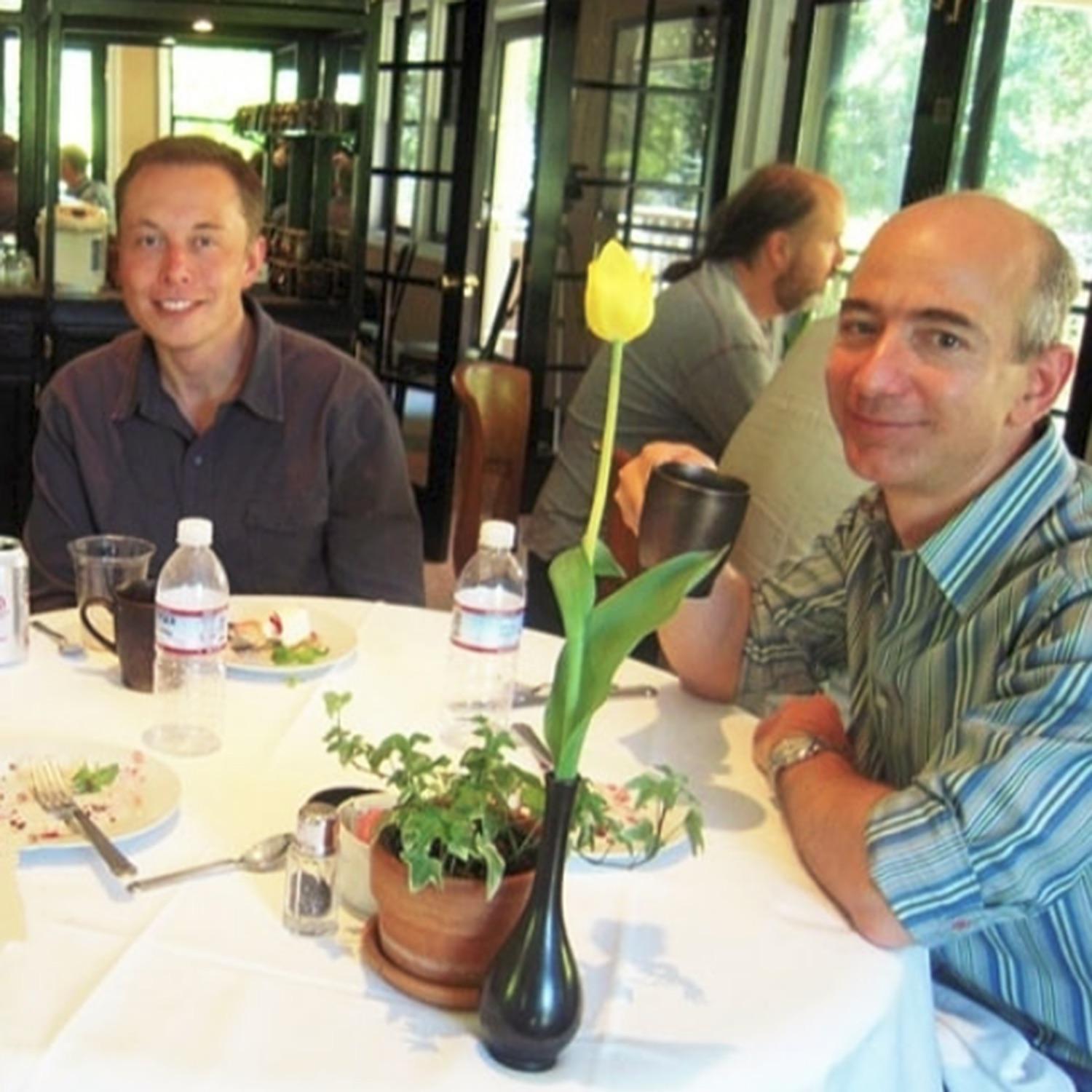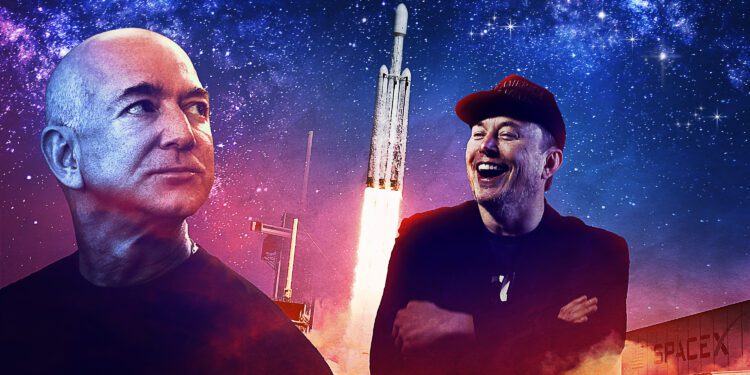On Monday, November 4, shares of Tesla were priced at $243. By yesterday’s close, they had surged to $321. The election of Donald Trump contributed to a one-third increase in its valuation in just a week, which added $245 billion to its overall market capitalization.
Elon Musk benefited by approximately $50 billion from this surge, as he holds a 20% stake in Tesla. This amount is nearly double what Musk personally spent on acquiring Twitter—now known as X—two years back.
This situation highlights the value that financial markets have placed on the connection to Trump, with whom Musk participated in a conference call alongside Ukrainian President Volodymyr Zelensky yesterday.
This type of connection is the very concern that journalists at The Washington Post suspect Jeff Bezos aimed for when he resisted allowing the publication’s editorial board to endorse Kamala Harris before the election.
This choice—which led to a loss of over 250,000 subscribers and tens of millions in revenue for The Post—has shed light on Blue Origin’s role, the struggling rocket enterprise within Bezos’ vast assortment of businesses. It has also highlighted his ongoing challenge to compete with Musk’s SpaceX, which has thrived while Blue Origin has been marked by slow progress.
“Every day SpaceX gains more distance from Blue Origin,” stated Eric Berger, a veteran observer of the modern space competition between Musk and Bezos and the writer of Reentry. “They’re still attempting to accomplish what SpaceX did back in 2010.”
The rivalry between Musk and Bezos is one of the most enduring in the tech industry, characterized by jabs and criticisms. Bezos established Blue Origin in 2000, while Musk launched SpaceX two years later in 2002.
The two met in 2004 for a dinner that Musk later described with disdain. “We discussed rocket designs,” he recounted to Washington Post reporter Christian Davenport, believing Bezos was on “the wrong evolutionary path.” Musk claimed he genuinely tried to provide valuable insights, but they were mostly disregarded.
“A few years ago, I asked Elon if he considered Bezos a competent engineer,” Berger added. “His response was negative.”

In 2004, Bezos was largely focused on managing Amazon. Blue Origin was an initiative he financed out of admiration for a bygone era of space exploration that he wished to rekindle.
For Musk, SpaceX was not a mere side project; it was his primary pursuit. After selling his PayPal shares for $200 million in 2002, he invested half of that amount into SpaceX, which provided enough capital for several rocket launches. The success of even one launch was critical for the company’s survival.
If successful, SpaceX could secure contracts with NASA to transport cargo into space—contracts that would help finance the development of powerful rockets, new spacecraft, and eventually a satellite system (Starlink) that has become globally envied.
“They began around the same time but took entirely different paths,” remarked Ashlee Vance, another expert on the space industry and author of Musk’s biography. “Blue Origin’s motto is ‘step-by-step, ferociously.’ They seem to be missing the ‘ferociously’ part.”
While overseeing Amazon, Bezos famously criticized the notion of a “Day Two” mentality at the company. Bezos declared every day should be “Day One” at Amazon, indicating the company—valued at $2.2 trillion—must always operate like a start-up and resist the temptation to prioritize profit margins over customer satisfaction.
Blue Origin, however, hasn’t enjoyed the luxury of making that choice. It remains, in many respects, trapped on Day Zero.
Since relinquishing daily control of Amazon in 2021, Bezos has taken on increased management responsibilities for Blue Origin—one of the main reasons he stepped back from the giant he built. He now expresses a desire for Blue Origin to become “the world’s most decisive company.”
“Good luck with that,” Berger responded to that ambition. “SpaceX is the world’s most decisive company because Elon has a meeting, makes a call, and that’s the end of it. Elon has a lot more experience, and his intuition has often proven correct on critical issues.”
Musk recognized perhaps before anyone else—before Bezos, NASA, the Russians, Europeans, and Chinese—that reusability of rockets was pivotal for the commercial viability of space travel. This idea was considered impractical by aerospace specialists for many years.
Nowadays, everyone is striving to create their own reusable rocket, similar to SpaceX’s Falcon 9, Falcon Heavy, and Spaceship, all designed to re-enter Earth’s atmosphere, with each newer model surpassing the last in capability.
Bezos’s company has yet to launch its orbital rocket, New Glenn.
He is already ten years behind schedule, a fact Musk anticipated with glee in 2013 when he, and not Bezos, secured the lease for launchpad 39A at NASA’s Cape Canaveral space center in Florida—where Apollo 11 departed for its lunar journey.
Bezos sought to claim it for Blue Origin, but even then, SpaceX emerged as the more qualified applicant. At the time, Musk assured he would “gladly accommodate (Blue Origin’s) needs” if Bezos’s firm somehow proved capable of producing a vehicle that met NASA’s human rating criteria and could dock with the space station, for which Pad 39A was allocated.
“Honestly,” he added with his usual sharpness, “I think we’re more likely to witness unicorns dancing in the flame duct.”
Since then, New Glenn has not conducted any flights, as Berger points out in Reentry. Meanwhile, SpaceX has completed 175 launches and continues to build on that momentum.
“Jeff is undeniably brilliant—he can discuss these matters deeply,” Ashlee Vance stated to The Daily Beast, “but Elon is there at the factory every day, while Jeff checks in periodically.”
Vance characterized SpaceX’s success as “difficult to articulate… This is a firm that didn’t exist two decades ago, and they have now completely outpaced the entire globe on every front.”
This reality may not be widely recognized by the public. Bezos had one significant achievement, flying in 2021 on Blue Origin’s suborbital New Shepard aircraft, crossing the 62-mile Kármán line—the acknowledged threshold of space—before making his return to Earth.
(Musk has not led any manned flights for his company. He is holding off until he can journey to Mars.)
The magnitude of Musk’s accomplishments in space is often overlooked by detractors concerned about his contentious and self-centered management style with X, the platform where many journalists still operate daily. Since his acquisition, most of the social media company’s value has been diminished, much to the dismay of the investors and banks that contributed $18 billion of the $44 billion purchase price.
Nevertheless, his reputation remains unassailable in the contemporary space race. The rocket company that Jeff Bezos aspires to lead is already in existence. It’s merely owned by one of only two individuals in the world wealthier than he is.


